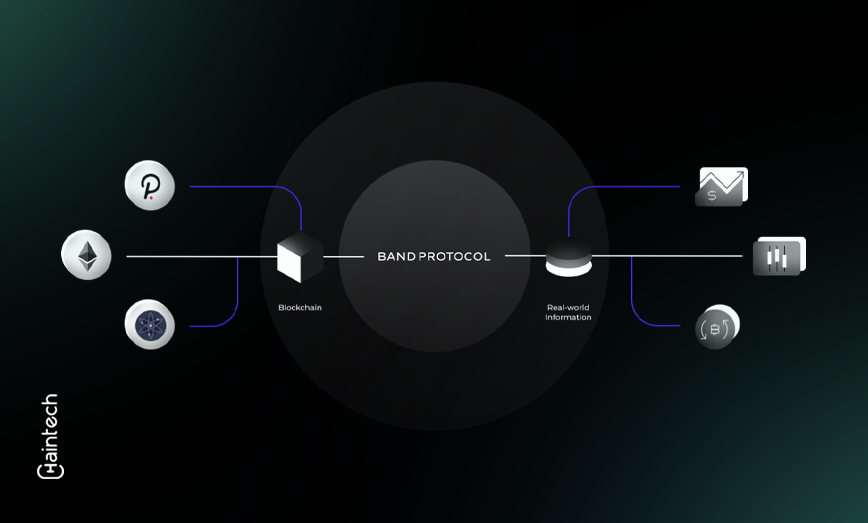The Rise of Blockchain Technology in Indian Agriculture: Top 10 Game-Changing Use Cases

India is a major player in the global agriculture sector and serves as the primary source of livelihood for approximately 55% of its population. The Indian agriculture sector boasts of being the largest producer of milk, pulses, and spices worldwide and holding the largest areas dedicated to wheat, rice, and cotton. When talking about the growth of this sector, it becomes imperative to mention that, as per a report, the Indian agricultural market is expected to be worth US $24 billion by 2025.
As the demand for agricultural products in India continues to rise, the growth of this sector can be attributed in part to technological advancements. Emerging technologies like blockchain and Artificial Intelligence (AI) have the potential to revolutionize the industry. Recognizing this potential, key players in the industry, as well as the Indian government, are exploring ways to implement these technologies across the sector, paving the way for a more efficient and effective agricultural system.
Earlier in January 2023, the Niti Aayog launched a pilot project in collaboration with the Himachal Pradesh government on apple farming to ensure quality production while monitoring the produce across the entire storage and supply chain with the help of blockchain technology.
Now let’s get down to brass tacks and explore the top 10 use cases of blockchain technology in the Indian agriculture sector.
Supply Chain Management
Blockchain technology can help manage the entire supply chain of agricultural products, from farm to fork. Currently, it is difficult for retailers and consumers to ascertain the origin of the produce. But with blockchain technology, consumers can track and record every step of the process, from planting to harvesting, processing, packaging, shipping, and delivery. This helps ensure that food is produced, processed, and delivered safely and sustainably, with transparency and accountability.
Product Quality Control
Tracking the storage and delivery of agricultural products is crucial to ensure their quality and safety. Specialized sensors can be used to gather real-time data about temperature, humidity, and other factors that can affect the quality and shelf-life of agricultural products. This data can then be logged on a decentralized distribution ledger based on the blockchain.
Fair Pricing
Blockchain technology can play a crucial role in creating more transparent pricing mechanisms in the agricultural industry. One of the significant advantages of blockchain is its ability to eliminate intermediaries, enabling farmers to directly negotiate better contracts with merchants, thereby increasing their profitability. This technology can also promote transparency in the market by creating a more open and decentralized marketplace. By providing access to market data and facilitating the exchange of information, blockchain technology can help to create a more equitable and competitive marketplace.
Smart Contracts
The agriculture industry can use smart contracts for various purposes, such as land leasing, crop insurance, and supply chain management. These self-executing contracts can automatically get executed when certain conditions are met and help automate processes such as payments, contracts, and agreements, which can significantly reduce costs and increase efficiency.
Farm Management
With the help of blockchain technology, farmers can make more informed decisions about planting and harvesting. Using blockchain technology, farmers can track soil quality data and monitor changes in soil nutrients, pH levels, and moisture content over time. This information can help farmers optimize their fertilizer and irrigation practices, improving crop yields and reducing costs.
Crop Insurance
The overall process of crop insurance can be made more efficient and effective by leveraging the power of blockchain technology. Blockchain technology can provide transparency and accountability in the claims process, which can help reduce fraud and increase trust in the system. It can also provide real-time data about weather patterns, soil quality, and other factors affecting crop yields, which can help insurance companies assess risk more accurately.
Land Registry
The absence of proper land records has always been one of the biggest challenges faced by Indian farmers. Blockchain technology can be implemented to address this challenge. This revolutionary technology can help manage land registry systems and provide a secure and transparent way to record land ownership and property rights. This can further help prevent disputes and fraud and assist governments and other organizations in managing land resources more effectively.
Food Safety
As consumers become more conscious about the food they eat, there is a growing demand for transparency and accountability in the food supply chain. Blockchain technology can help improve food safety by providing greater transparency about the use of pesticides, fertilizers, and other chemicals in agriculture. By recording this information on the blockchain, consumers can access and verify the information, making it easier to make informed decisions about the food products they purchase.
Agtech Innovation
Agtech has the potential to revolutionize the agricultural industry by improving efficiency, reducing costs, and increasing yields. However, the development and adoption of new agtech solutions can be hindered by challenges such as data privacy, security, and interoperability. Blockchain technology can help overcome these challenges by providing developers with a secure and transparent platform to create new applications and services to help farmers improve their agricultural processes and practices.
Sustainable Practices
Incorporating blockchain technology into many aspects of farmers’ activities can have a synergistic impact, resulting in significant benefits for farmers. The use of blockchain technology in agriculture can simplify, facilitate, and enhance the lives of farmers, reducing their workload and stress levels. By automating many processes and providing real-time data, farmers can optimize their resources, reduce waste, and increase efficiency, leading to a more sustainable and profitable agricultural sector.









